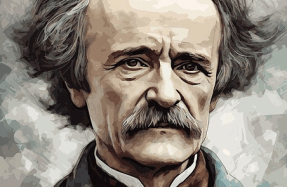Change of heart

If you’ve been a fiction writer for any length of time, you surely have a whole list of things you’ve picked up about character development – from your reading of good fiction and books on writing, from writing colleagues, or from conferences. The three big accomplishments a fiction writer strives for are:
1) Create a complex, multi-dimensional protagonist.
2) Create a sympathetic protagonist that the reader can root for.
3) Make sure your protagonist has an arc – that is, changes in some way by the end of the story.
Readers want a story, not just a portrait or a sketch. Every story has an occasion, a complication, and a central conflict, which develops as the plot unfolds. As in real life, characters struggle with problems of different kinds. What’s all this add up to? What does your protagonist learn? How are they different by story’s end?
To learn more about this matter of character change, we consulted several professional short story writers and novelists for their insights.
Ways our characters can change
In what ways might characters change in a story or novel? How extensive are these changes likely to be, and how fundamental are they in terms of a character’s essential nature or overall makeup?
Change can begin with or result in an epiphany – “the light going on in the head,” as prize-winning short story writer Robert Garner McBrearty puts it. “Once the light shines in, even dimly, there’s a glimmer of hope, the possibility of change. Often that’s the place I prefer to leave off, with the possibility of change in the balance.” If the character does come to some form of realization, it may not be fixed: “Maybe a character makes a seemingly breathtaking realization, only to reverse the realization moments later.”
That enlightened moment is something Steven Wingate, short story writer and novelist, shoots for. “I like to something they don’t even register but that, if I’ve done my job as an author, the reader will see clearly.”
You’re reading a preview, subscribe to read more.
Start your free 30 days



